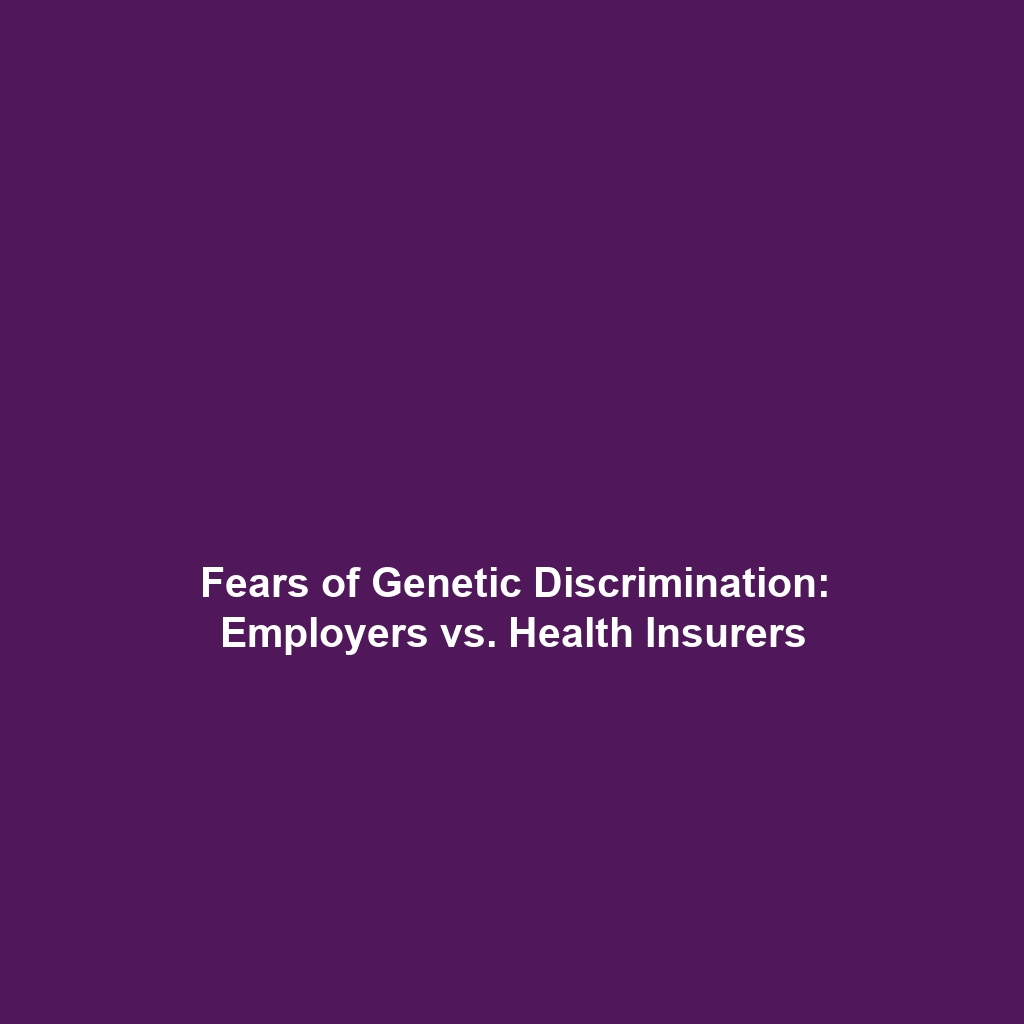The Genetic Information Nondiscrimination Act (GINA) and the Human Genome Project
Introduction
The Genetic Information Nondiscrimination Act (GINA), enacted in 2008, represents a pivotal stride towards ensuring that individuals are not discriminated against based on their genetic information. This legislation is particularly significant in the context of the Human Genome Project, which has provided invaluable insights into the human genetic code. By preventing discrimination in health insurance and employment, GINA safeguards individual rights, promotes genetic research, and enhances public trust in genetic testing and genomics. Understanding the implications of GINA is crucial as it fosters a more equitable landscape for advancements stemming from the Human Genome Project.
Key Concepts
Several major concepts underlie the Genetic Information Nondiscrimination Act (GINA) and its place in the realm of the Human Genome Project. Key principles include:
- Definition of Genetic Information: Genetic information refers to the heritable information that is contained in genes and DNA.
- Non-Discrimination in Health Insurance: GINA prohibits health insurers from denying coverage or charging higher premiums based on genetic predisposition to diseases.
- Employment Protection: Employers are barred from using genetic information in hiring, firing, or promotion decisions.
- Patient Privacy: GINA ensures the confidentiality of genetic test results.
These concepts are crucial for mitigating fears surrounding genetic testing and research initiated by the Human Genome Project.
Applications and Real-World Uses
The Genetic Information Nondiscrimination Act (GINA) has profound real-world applications that are closely tied to the outcomes of the Human Genome Project. Some significant applications include:
- Encouraging individuals to undergo genetic testing without fear of repercussions in employment or insurance.
- Facilitating advancements in personalized medicine where treatments are tailored based on genetic profiles.
- Promoting research initiatives by enhancing participant willingness to share genetic information.
These applications underscore how GINA plays a vital role in leveraging information from the Human Genome Project to benefit society at large.
Current Challenges
Despite the advancements brought about by GINA, several challenges remain in the context of the Human Genome Project. These include:
- Public Awareness: Many people still lack understanding of their rights under GINA, which hampers its effectiveness.
- Insurance Gaps: GINA does not cover long-term care and life insurance, posing potential discrimination risks.
- Technological Advancements: Rapid advancements in genetics may outpace existing laws, necessitating continuous policy updates.
These challenges highlight the ongoing need for robust advocacy and legislative support.
Future Research and Innovations
Future research related to GINA and the Human Genome Project is expected to focus on:
- Developing more inclusive genetic privacy laws that cover newer technologies.
- Innovations in genetic testing that address ethical considerations in personalized medicine.
- Research into how genetic information can be utilized safely in a way that respects individual rights.
These innovations will likely redefine the landscape of genetic research and non-discrimination protections.
Conclusion
In summary, the Genetic Information Nondiscrimination Act (GINA) is integral to safeguarding individuals against genetic discrimination, thereby fostering continued advancements from the Human Genome Project. As we move forward, it is crucial to enhance public understanding of GINA and advocate for continued research that respects genetic privacy. For more information on genetic research and protections, explore our articles on genetic testing rights and advancements in genomics.

